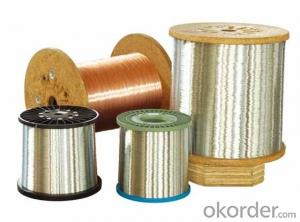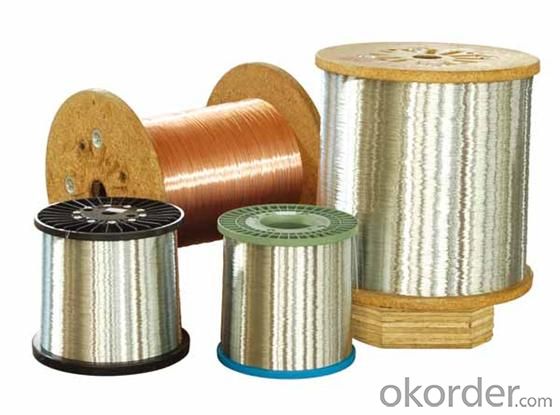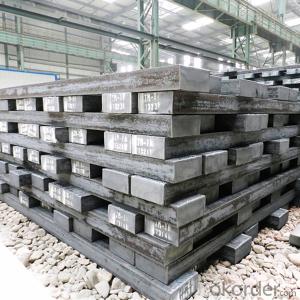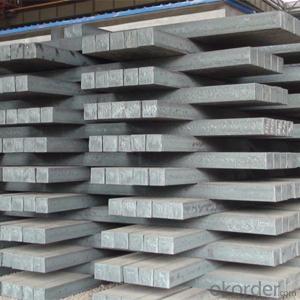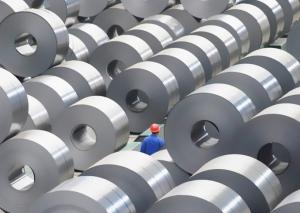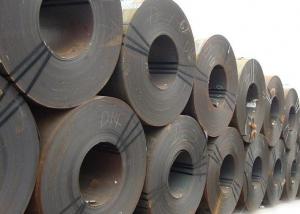BOX STITCHING WIRE STAPLE WIRE BRUSH WIRE
- Loading Port:
- China Main Port
- Payment Terms:
- TT OR LC
- Min Order Qty:
- -
- Supply Capability:
- -
OKorder Service Pledge
Quality Product, Order Online Tracking, Timely Delivery
OKorder Financial Service
Credit Rating, Credit Services, Credit Purchasing
You Might Also Like
1、SIZE :0.48-0.58-0.65-0.88-0.90-1.0-1.2-1.3-1.4-1.5-1.6-1.7-1.8-1.9-2.0mm
2、 TENSILE STRENGTH :500-800 N/mm2
800-1000 N/mm2
3、 ZINE COATING :10-25g/㎡
4、 WIRE DIAMETER TOLERANCE : ±0.02mm
5、 Packing :
TYP | WEIGHT(kg) | A(mm) | B(mm) | C(mm) | D(mm) |
BB20 | 18 | 200 | 110 | 33 | 180 |
BB35 | 32 | 253 | 116 | 33 | 175 |
K355 | 45 | 355 | 225 | 36 | 200 |
HY100 | 90 | 355 | 215 | 128 | 345 |
MP100 | 90 | 355 | 228 | 128 | 352 |
500LBS | 250 | 565 | 310 | 80 | 395 |
1000LBS | 500 | 600/625 | 356/381 | 80 | 610 |
Paper 650LBS barrel | 300 | 560 | 330 | 330 | 760 |
- Q: What are the different types of steel alloys?
- There are several different types of steel alloys, including carbon steel, stainless steel, tool steel, alloy steel, and high-strength low-alloy steel.
- Q: How is steel pipe threaded for plumbing applications?
- Steel pipe is threaded for plumbing applications by using a pipe threading machine or a manual pipe threader. The process involves cutting threads onto the ends of the steel pipe using a die. This allows the pipes to be easily connected and secured with pipe fittings for various plumbing installations.
- Q: How are steel gratings used in the construction of walkways and platforms?
- Steel gratings are commonly used in the construction of walkways and platforms to provide a sturdy and safe surface for people to walk on. These gratings are designed with open spaces or gaps, allowing for proper drainage of rainwater, snow, and other liquids. They also offer excellent slip resistance, ensuring a secure footing for pedestrians. Additionally, steel gratings are durable and can withstand heavy loads, making them an ideal choice for high-traffic areas.
- Q: What is the process of manufacturing steel products?
- The process of manufacturing steel products begins with the extraction of iron ore from mines. The ore is then refined to remove impurities and processed into iron. This iron is combined with carbon, typically in the form of coke, and other elements such as manganese, nickel, or chromium to create the desired properties of the steel. The mixture is melted in a furnace at extremely high temperatures, reaching around 1,500 degrees Celsius. Once melted, the molten steel is poured into molds or shaped using various methods such as casting, rolling, or forging. The shaped steel is then cooled and undergoes heat treatments, such as quenching or tempering, to enhance its strength and durability. Finally, the steel is finished by removing any surface imperfections through processes like grinding, polishing, or coating to protect against corrosion.
- Q: What are the uses of steel in the oil and gas industry?
- Steel is widely used in the oil and gas industry for various applications due to its strength, durability, and resistance to corrosion. It is commonly used in the construction of oil rigs, pipelines, and storage tanks. Steel is also used in the manufacturing of valves, fittings, and other equipment necessary for the extraction, refining, and transportation of oil and gas. Its exceptional properties make steel a reliable and essential material in ensuring the safety and efficiency of operations in the oil and gas industry.
- Q: How does steel sheet metal fabrication work?
- Steel sheet metal fabrication is a process that involves cutting, bending, and shaping steel sheets to create various products. It begins with the design phase, where engineers create a blueprint or CAD model of the desired product. Next, the steel sheets are cut using different techniques such as laser cutting or shearing. The cut sheets are then bent into shape using press brakes or other methods, and additional processes like welding or stamping may be used to join or add details to the metal. Finally, the fabricated steel sheet is finished by sanding, painting, or coating to enhance its appearance and protect it from corrosion.
- Q: How are steel profiles used in the fabrication of conveyor systems?
- Steel profiles are commonly used in the fabrication of conveyor systems as they provide strength, durability, and versatility. These profiles are used to construct the framework, support structure, and various components of the conveyor system, such as the conveyor belt, rollers, and guides. The steel profiles are carefully designed and fabricated to ensure the conveyor system can handle the required load capacity and operate smoothly. Additionally, steel profiles can be easily customized and assembled to meet specific conveyor system requirements, making them an ideal choice for efficient and reliable material handling.
- Q: How are steel plates heat-treated for improved strength?
- Steel plates are heat-treated for improved strength by subjecting them to a specific heating and cooling process known as quenching and tempering. This involves heating the steel plate to a high temperature and then rapidly cooling it to harden the material. Afterward, the plate is reheated to a lower temperature to temper it, which helps to reduce brittleness and improve its toughness and overall strength.
- Q: What are the advantages of using steel bars in construction?
- There are several advantages of using steel bars in construction. Firstly, steel bars are incredibly strong and have a high tensile strength, making them ideal for reinforcing concrete structures and providing stability. Secondly, steel bars are resistant to corrosion, which ensures the longevity and durability of the construction. Additionally, steel bars are versatile and can be easily shaped and molded according to the needs of the project. Moreover, steel bars are readily available in the market and have consistent quality standards, ensuring reliability in construction. Lastly, using steel bars in construction allows for faster construction timelines as they can be prefabricated off-site and easily transported to the construction site. Overall, the use of steel bars in construction offers strength, durability, versatility, and efficiency.
- Q: What are the different types of steel plates and sheets available?
- There are various types of steel plates and sheets available, including carbon steel plates, stainless steel plates, alloy steel plates, and galvanized steel sheets. Each type has its own unique properties and applications, making them suitable for different industries and purposes.
Send your message to us
BOX STITCHING WIRE STAPLE WIRE BRUSH WIRE
- Loading Port:
- China Main Port
- Payment Terms:
- TT OR LC
- Min Order Qty:
- -
- Supply Capability:
- -
OKorder Service Pledge
Quality Product, Order Online Tracking, Timely Delivery
OKorder Financial Service
Credit Rating, Credit Services, Credit Purchasing
Similar products
Hot products
Hot Searches
Related keywords
